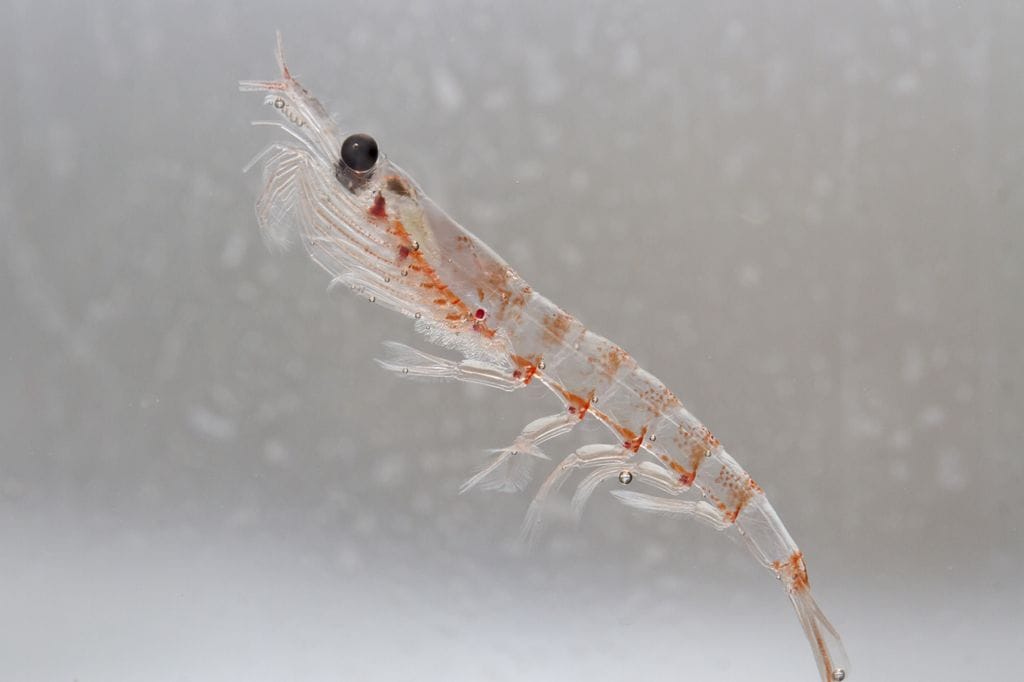Want Healthy Looking Skin? Krill Oil Can Help!
Krill oil is the number 1 choice in the UK for omega 3 essential fatty acid (EFA) supplementation and there’s good reason: The omega 3 EFAs in krill oil are in phospholipid form and are proven to have 47% greater bioavailability compared to triglyceride forms of omega 3 EFAs. Now that’s value for money!
So why is Krill Oil so special?
Krill Oil is a naturally occurring blend of highly bioavailable phospholipid omega 3 EFAs, antioxidants, phospholipids and other nutrients that combine to give a potent health-supporting daily supplement. Research shows that krill oil supports many areas of health including heart, brain, hormones and obesity due to its unique natural formulation.
Omega 3 EFAs are indisputably essential to maintaining a healthy body from development in the womb right through to sustaining health in old age. Multiple clinical trials have demonstrated that omega 3 EFAs play a pivotal role in eye and brain development as well as promoting cognitive and immune system function. Deficiencies in omega 3 EFAs have been linked to many illnesses including cardiovascular disease, dementia, arthritis and some forms of cancers.2
EFAs & the Diet
Omega EFAs can only be obtained through the diet. However, a typical western diet is often deficient in enough of the two omega 3 fats – eicosapentaenoic acid (EPA) and docosohexaenoic acid (DHA). EPA and DHA can only be obtained from dietary sources such as oily fish like Salmon, Trout and Sardines, or vegetarian sources such as Flaxseed Oil, which is rich in the EPA and DHA precursor alpha linoleic acid (ALA).
Many diets also contain high levels of omega 6 EFAs, which are essential but at lower levels compared to omega 3 EFAs. High levels of omega 6 EFAs can produce pro-inflammatory molecules that can lead to increased blood clotting and impair immune responses. Modern diets often have ratios of up to 30:1 omega 6 to omega 3 EFAs due to high intake of processed foods, meats, dairy and vegetable oils. For optimal health the correct ratio should be around 4:1 with some sources citing equal daily amounts of omega 3 and 6.
As a result, omega 3 EFA supplements can be very important in helping to maintain the correct omega 3:6 ratio and support health. For this reason, Krill Oil is a great supplement to help restore and maintain omega 3 EFA balance as it’s packed full of readily bioavailable omega 3 EFAs and phospholipids.
“KRILL OIL HAS 500 TIMES MORE ANTIOXIDANT ACTIVITY COMPARED TO VITAMIN E”
Krill Oil contains natural antioxidants, But that’s not all! Krill oil is also naturally rich in antioxidants such as Astaxanthin and Vitamins A and E, which are known to protect cells from oxidative stress, providing essential anti-ageing benefits. Astaxanthin also helps in the regeneration of antioxidants in the cells.
The antioxidant capacity of Krill Oil has been measured using the Oxygen Radical Absorbance Capacity (ORAC) scale which compares the relative antioxidant power of different nutrients and foods. , The combination of natural antioxidants in Krill Oil means this super oil has:
- 48 times greater antioxidant activity compared to fish oil
- 500 times greater antioxidant activity compared to Vitamin E alone
- 34 times greater antioxidant activity compared to Co-Enzyme Q10, one of the master antioxidants in the body!
Krill Oil & Brain Health
The rich levels of astaxanthin and other antioxidants in Krill Oil means that this supplement has a very important role in preserving cell membranes from free radical (oxidative) damage. Astaxanthin can readily cross the blood brain barrier so supporting health central nervous system function. , This is important as neurons (nerve cells) in the brain are particularly susceptible to damage by oxidative stress, which may result in development of chronic neurodegenerative conditions such as Alzheimer’s, Parkinson’s disease and Multiple Sclerosis (MS). Regular intake of Krill Oil may therefore help to preserve and maintain brain function.
Krill Oil & Heart Health

Astaxanthin also protects lipids from oxidation reducing damage caused by LDL cholesterol in the vasculature, which can contribute to cardiovascular diseases such as atherosclerosis, as well as raising “good” HDL cholesterol and lowering blood triglycerides.
Clinical studies have shown that daily Krill Oil supplementation significantly reduces the level of circulating triglycerides, total cholesterol and LDL cholesterol (major risk factors for cardiovascular disease) whilst increasing beneficial HDL cholesterol levels compared to fish oils or placebo. Cardiovascular diseases (CVD) are the cause of over 25% of all deaths in the UK every year. There are often no visible signs of CVD so prevention through diet and nutritional support using omega 3 EFAs as part of a cardiovascular support programme is imperative.
Krill Oil & Weight Management
Around 25% of the UK population is obese, which contributes to many potentially life-limiting inflammatory diseases including CVD, type 2 diabetes and certain cancers. Krill oil, alongside diet and lifestyle changes, improves metabolic obesity parameters such as lowering blood lipids, increasing fat burning enzymes and reducing inflammation.
One study showed that Krill Oil reduces blood levels of endocannabinoid 2-arachidonoyglycerol (2AG), a signalling molecule that influences appetite and emotional state, aiding weight loss. This result was not seen with fish oil supplements.
Krill Oil also improves insulin sensitivity and prevents the depletion of the GLUT 4 protein, which helps reduce blood sugar levels by increasing muscle and adipose (fat) tissue sensitivity to insulin and blood sugar uptake. The high astaxanthin antioxidant status of Krill Oil also helps toreduce oxidative cell damage during hyperglycemic (high blood sugar) states.
Krill Oil & Skin Anti-Ageing
Along with the internal antioxidant benefits of astaxanthin this powerful antioxidant also protects the skin from UV damage and ageing, particularly relevant at this time of year with high levels of UV exposure. In fact, clinical studies show that Krill Oil protects against UV sun damage and improves skin condition including reducing crow’s feet type wrinkles and increasing skin moisture content. Phospholipid omega 3 EFAs, only found in krill oil, also keep cell membranes flexible, fluid and healthy, including skin cells. The studies resulted in people reporting younger, healthier looking skin.
So there are many wide and varied health benefits when you supplement with this remarkable oil. But, you might ask, is the source actually sustainable?
Krill Oil Sustainability

Krill are known to form an important part of the marine food chain, which is why reputable supplement companies work with the Marine Stewardship Council. The MSC is an international nonprofit organisation with an independent certifying body. The MSC focuses on the health of ocean stocks and how they are managed in addition to assessing the effects of fishing and ocean harvesting on the wider ecosystem, including marine mammals, birds and fish. Reputable Krill Oil supplements should have MSC certification recognised by MSC eco-friendly label, providing consumers with a guarantee of sustainability, effective fisheries management and full traceability from sea to shelf. Look for the MSC eco-friendly label to be sure of your Krill Oil supplement origin.

References:
- Simopoulos (2002) The Importance of the Ratio of Omega6:3 EFAs. Biomed Pharmacother 56:365-379
- Fish Oils Nutrigold Education Article full paper
- https://nutrisan-export.com/wp-content/uploads/2016/03/productinfoNKO.pdf
- http://www.superbakrill.com/your-omega-3-level-is-a-key-to-wellness
- Fassett et al (2011) Astaxanthin: A Potential Therapeutic Agent In Cardiovascular Disease. Mar Drugs 9:447-65
- Riccioni et al (2011) Marine Carotenoids And Cardiovascular Risk Markers. Mar Drugs. 9:1166-75
- Iwamoto et al (2000) Inhibition Of Low-Density Lipoprotein Oxidation By Astaxanthin. J Atheroscler Thromb. 7:216-22
- Pashkow et al (2008) Astaxanthin: A Novel Potential Treatment For Oxidative Stress And Inflammation In Cardiovascular Disease. Am J Cardiol 101:58D- 68D
- Hussein et al (2007) Astaxanthin Ameliorates Features Of Metabolic Syndrome In SHR/Ndmcr-Cp. Life Sci 80:522-9
- Berge et al (2014) Krill oil supplementation lowered serum triglyceride without increasing LDL cholesterol in adults with borderline high or high triglyceride levels. Nutr Res 34:126-133
- Berge et al (2013) Chronic treatment with krill powder reduces plasma triglyceride and anandamide levels in mildly obese men. Lipids in Health & Disease 12:78
- https://www.bhf.org.uk/research/heart-statistics
- http://www.hscic.gov.uk/catalogue/PUB13648
- Iyengar (2015) Obesity and Cancer: Local and Systemic Mechanisms. Ann Rev Med 66:297-309
- Maki et al (2009) Krill oil supplementation increase plasma concentrations of EPA and DHA in overweight and obese men and women. Nutr Res 29:609-615
- Paoli et la (2015) Effects of n-3 Polyunsaturated Fatty Acids (?-3) Supplementation on Some Cardiovascular Risk Factors with a Ketogenic Mediterranean Diet. Mar Drugs 13:996-1009
- Banni et al (2011) Krill oil significantly decreases 2-arachidonoylglycerol plasma levels in obese subjects. Nutrition & Metabolism 8:7
- Fedor et al (2009) Prevention of insulin resistance by n-3 polyunsaturated fatty acids. Curr Opin Clin Nutr Metab Care 12:138-46
- Wang et al (2014) The potential applications of marine bioactives against diabetes and obesity. Am J Mar Sci 2: 1-8
- Bunea et al (2004) Evaluation of the effects of Neptune Krill Oil on the clinical course of hyperlipidemia. Alt Med Rev 9(4):420-8
- Tominaga et al (2012) Cosmetic Benefits Of Astaxanthin On Human Subjects. ACTA ABP Biochimica Polonica 59: 43-47








3 Comments. Leave new
[…] For more in depth information about fish oils then please read the Nutrigold Education Article on Fish Oils. […]
[…] 3 essential fatty acids are key for brain health, as well as for heart and hormone balance. Krill oil or fish oils are a good way of getting the daily quota. The right balance of gut bacteria are also […]
I have been buying my supplements including Krill Oil for over 20 years from Nutrigold but I notice that the colour the the Krill Oil capsules has reduced significantly in its usual orange colour?
Can you please explain why this is and if you have reduced the amount each capsule now contains, as I notice that the price has gone up quite considerably also…